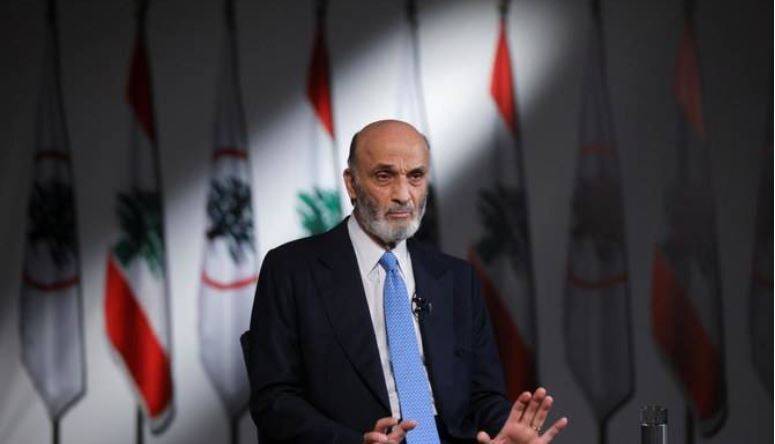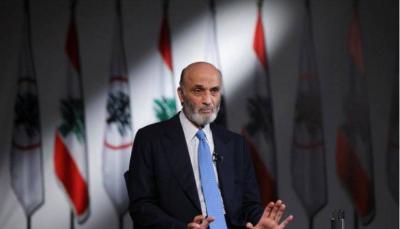The newspaper "Nidaa al-Watan" reported that while waiting for the outcome of the International Monetary Fund delegation's mission, which is expected to last in Beirut until mid-April, the pillars of the ruling authority and government continue a pattern of "patching solutions and wasting time" while shifting blame amid the collapse. This is part of a systematic plan aimed at obscuring the true rival of the Lebanese people, confusing the culprits, distorting facts, and falsifying the realities that have led the country to its state of humiliation, misery, and dire poverty. The question arises whether the Fund's mission will succeed in this "critical" endeavor, as described by accompanying sources, or whether the theory of "let the IMF go to hell," championed by the Shiite duo in rejection of the Fund's reform conditions, will prevail.
Faced with the blatant official inability to create any reform breach in the tense atmosphere ruled by the March 8 majority, Prime Minister Najib Mikati, under the increasing pressure on the Lebanese with respect to living, social, and economic conditions, found no better way than to encourage them on "agricultural jihad," urging them to "plant wheat of both soft and hard types to confront tough conditions and revive Lebanon." Meanwhile, President Michel Aoun, viewing the impending collapse, reassured his people that he is determined to continue the "financial jihad" regarding capital control and forensic auditing until the last breath of his term, stressing that he "will not leave" the presidency before exposing "every corrupt individual," leaving Lebanon's revival to his successor at Baabda Palace. However, opposition circles noted Aoun's remark describing his reform performance, stating: "I am currently collapsing the building, and you will rebuild it after me," seeing it as the "most honest expression and most precise diagnosis of the destructive results of this era for the country."
These circles also expressed surprise at what they described as a "disconnection from reality" that dominated President Aoun's remarks before the new executive council of the Maronite League. This included "holding the Governor of the Central Bank, Riad Salameh, responsible for the waste of public funds while Aoun himself proposed extending the governor's term in the cabinet," or in terms of "ignoring the scale of the financial losses imposed on the treasury by "the Free Patriotic Movement" ministers regarding electricity subsidies, which accumulated to two-thirds of the public debt," in addition to "turning a blind eye to his personal and political responsibility for covering Hezbollah's practices that have led to Lebanon's isolation regionally and internationally and the outflow of capital from the country." Moreover, his mention of the impossibility of judicial reform "as long as it remains controlled" was seen by the opposition as a reminder of the current era and its movement in the face of selective judicial practice "under control" that is being pursued by Judge Ghada Aoun.
On the opposing side, the leader of the Lebanese Forces Party, Samir Geagea, recently highlighted the disastrous results of the ongoing alliance between Hezbollah and the Free Patriotic Movement. He expressed astonishment at the slogan launched by Hezbollah in its electoral battle, "We remain to protect and build," questioning regarding the "protection" aspect: "Who asked you for this protection? This role in Lebanon, as in all countries, is the duty of state institutions, the Lebanese Army, and security apparatuses, in addition to international relations." Regarding "building," he noted that Hezbollah has enjoyed a parliamentary majority over the past four years, along with a president "at its side," and they have held more than two-thirds majority in every government. So, what have they achieved with all these majorities? The result of "this building" has been the greatest catastrophe that has befallen the Lebanese people in their history.
Geagea warned that "the presence of Hezbollah as it is poses a significant danger to the Lebanese people." He questioned: "When we see that the 'party' is allied with the 'National Movement' in all regions and is trying to convince its allies to vote for 'the Movement' and Minister Gebran Bassil, where is the building? How will it build? Didn't you sense the level of corruption, incompetence, and failure in managing the affairs of the country? The electricity issue stands as glaring evidence of that. And despite this, Hezbollah allies itself with Gebran Bassil throughout the country. Thus, its slogan 'We remain to protect and build' neither protects nor builds."
Ultimately, Geagea concluded by asserting that "Hezbollah is the largest contributor to the current state of affairs in Lebanon, while the more important and worse fact is that it is planning to continue on the same path through this alliance with the National Movement," urging Shiite voters in this context that "as we have said and continue to say, anyone who votes for the 'National Movement' means they are voting for Hezbollah. Likewise, anyone who votes for Hezbollah means they are voting for the 'National Movement'."




